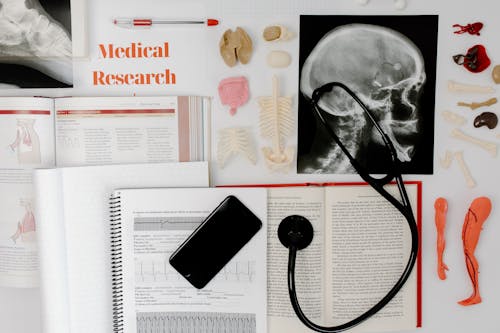
When you improve your cardiovascular health, strengthen your lungs and get in better shape, you’ll change your life for the better.
Not everyone who has poor cardiovascular endurance or weak lungs is aware of it until a scenario exposes their physical limitations.
Imagine the following scenario: To get the most out of the beautiful fall foliage, you and a group of friends decide to tackle an overnight hike to camp outdoors. What better way to greet the new season than by waking up in the crisp, fall air?
You’re getting ready for the fall hike, your backpack is heavy with camping supplies, and you know this is going to be a challenge – but you’re up for it.
Imagine, however, that not long into the hike, you’re the only one in your group panting loudly enough to keep the bears away. Your face is a different shade of red than everyone else’s, and no one has been requesting ‘water breaks’ or ‘breathing breaks’ as often as you. You’re also acutely aware of a stabbing cramp in your side and sharp pain right in the middle of your chest.
You wonder what’s going on, and you reason that it must be the cold air or low blood sugar. After all, you’re in the gym nearly every day squatting much more weight than this backpack you’ve been carrying. There’s no way you’re out of shape – is there?
You see, your muscular strength might be just fine. But how’s your cardiovascular health? Is this hike (hours of intense cardio) exposing your poor cardiovascular health?
What Exactly is Cardiovascular Health?
As Dr Alex Prevallet of eNavvi.com explains, “Cardiovascular health is a broad term that is often not explained well, and it broadly covers the health of the heart and vasculature of the body. The cardiovascular system can’t be isolated from any one organ’s function as it has a unique and integral role with other organs such as the lungs, kidneys, and brain”.
Generally, when we talk about the cardiovascular system, we’re referring to one component of our body’s circulatory system, specifically to the heart and blood vessels that pump and carry blood throughout our bodies. With every beat of your heart, blood containing oxygen, hormones and vital nutrients is pumped through your heart and delivered to your organs, cells, and other systems.
If you’re able to tolerate the high-intensity exercise, meaning you can keep a steady pace for more than a few minutes and your heart rate can return to normal when you’ve completed a workout, you’re probably in good shape and have good cardiovascular health.
If, however, climbing stairs, carrying a backpack or any aerobic exercise is so challenging that you need frequent breaks or can’t keep up with others, that’s a good indication that you need to work towards improving your cardiovascular health. Inability to perform exercise may also signal an underlying condition.

Let’s Talk About Lung Health
Your lungs are another component of the circulatory system, and they have an important role to play. Good lung health is crucial for cardio activities.
According to Dr Prevallet, “The lungs and the heart have a special relationship in the body. Deoxygenated blood leaves the heart and travels to the lungs before returning to the heart and then to the rest of the body. Problems with one organ often lead to issues with the other—the left side of the heart when dysfunction leads to fluid building in the lungs. Similarly, problems within the lungs lead to fluid building on the right side of the heart and ultimately the rest of the body. The failure of one often leads to the slow collapse of the other organ.”
Your lungs are such an integral part of a healthy cardiovascular system, so it’s vital to keep them healthy. The most obvious way to keep your lungs clear is to not smoke, but you should also avoid inhaling pollutants such as dust, chemicals or fumes.
Long-term exposure to irritants can lead to lung diseases such as COPD or lung cancer. Luckily, our lungs have an amazing ability to heal themselves. Recent research revealed that even patients who quit smoking after 40 years had lung cell regeneration strikingly similar to those of patients who had never smoked, although this can take time; depending on a myriad of factors, the lungs can take anywhere between 1 month and 1 year to heal.
There are some breathing exercises that have been prescribed by lung rehabilitation specialists to people with chronic lung diseases such as asthma, but you can do them at home to help improve lung function and strengthen your lungs. Belly breathing or pursed lip breathing strengthens your diaphragm and keeps your airways open longer.
Practising a yoga breathing technique known as Breath of Fire has also been shown to strengthen breathing muscles.
Interestingly, there is some research out there indicating that hydrotherapy may be useful in treating COPD. Here is some more information on how to strengthen your lungs.
What Are Some Signs of Poor Cardiovascular Health?
Poor cardiovascular health means that your blood is not being pumped efficiently enough to deliver the oxygen and nutrients your body needs, and this can be due to either problem with the heart, blood vessels, or lungs.
Some symptoms of poor cardiovascular health include shortness of breath on exertion, persistent coughing, chest pain or discomfort, nausea, fatigue, erectile dysfunction, cold hands or feet, angina, high blood pressure and ischemia.
It’s important not to ignore any of these signs, as circulatory diseases can often build on each other. For example, if you have high cholesterol you are at risk of developing atherosclerosis, which in turn increases your risk of coronary heart disease or stroke.
There are a few different tests your doctor can do to assess the health of your heart and lungs such as a cardiac output test, which measures how much blood your heart pumps out in one minute, or a spirometry test. This test evaluates the health of your lungs by measuring how much air you can breathe in and out and how efficiently you can blow air out of your lungs.
How Can I Improve My Cardiovascular Health?
If you regularly do cardio such as regularly going for a run, hike or cardio fitness class, your cardiovascular health will improve. Living an active lifestyle is the best way to maintain optimal cardiovascular health. When we’re active, our muscles require more oxygen, so the heart and lungs need to work harder to deliver oxygenated blood to our muscles more quickly. Not only does this mean that the heart is beating more often, but it’s also contracting more forcefully in order to send out a larger amount of blood.
Your heart and lungs are muscles, and just like every other muscle, the more often you exercise them, the stronger they become. Being too sedentary can lead to poor cardiovascular health and weaker lungs. Doing aerobic exercise only once per week isn’t enough cardio to maintain good cardiovascular health.
By making our heart and lungs work harder during periods of exercise, over time the body will start working more efficiently, pushing out a greater volume of blood even while at rest.
Aerobic exercises that get your heart rate up such as running, hiking, walking, swimming or rowing give your heart and lungs the workout they need and improves stamina, while core strengthening exercises such as planking or Pilates improve the strength of your diaphragm and breathing muscles.
Circuit training or HIIT workouts are both great options because they combine aerobic exercise with strength training. Plus, the whole routine can be completed in a short amount of time with minimal equipment.
If you’re starting a new fitness routine after years of being inactive, any sort of movement that increases your heart rate is a great place to start. Click here for a short, low-impact aerobic workout to get you started, and always consult with a doctor before beginning any fitness regimen.
A minimum of 30 minutes of aerobic activity 3 – 5 times per week is recommended. You should start to see improvements in your cardiovascular health after 8-12 weeks of consistent training, but only if you really push yourself.

How Can Improving Cardiovascular Health Change Your Life?
Better cardiovascular health will improve your life in so many ways. With stronger lungs, improved cardiovascular endurance and higher stamina, you will be able to:
- Enjoy that hike or aerobic activity without much pain or discomfort getting in the way of your experience.
- Keep up with your active friends; no more feeling self-conscious about your pace or endurance.
- Less limitations around what activities you can participate in.
- Build confidence knowing you have strength and endurance.
- Look forward to many years ahead with a significantly lower risk of heart complications.
- Improve your mood.
- Build stronger bones.
- Have a stronger, more active immune system.
Does Your Diet Impact Your Cardiovascular Health?
They say abs start in the kitchen, and so can cardiovascular health. Vitamins, minerals and antioxidants play a pretty significant role in our overall health, so feed your body what it needs to keep it functioning optimally.
Vitamin C and vitamin E both contain powerful antioxidants which can reduce your risk of cardiovascular disease. Foods that contain vitamin E are brown rice, nuts and seed oil such as sunflower oil. Vitamin C helps vitamin E do its job and can be found in citrus fruits, kale, berries, tomatoes and peppers.
If you’ve already had a cardiac episode in the past, your doctor may prescribe taking vitamin C and E in the form of a supplement.
Furthermore, foods that contain phytochemicals (a compound found in plants) may reduce your risk of developing cancer. Some examples of phytochemicals are the tannins found in teas or the flavonoids from most fruits.
If poor cardiovascular health is keeping you from the things you enjoy, your genes may be a factor. A CircleDNA test can tell you if you have certain genetic markers that predispose you to conditions such as asthma, high cholesterol or hypertension which can hinder your efforts to make improvements. CircleDNA also provides you with a fitness report, detailing your genetic likelihood to have higher or lower endurance.







This Post Has One Comment
Comments are closed.